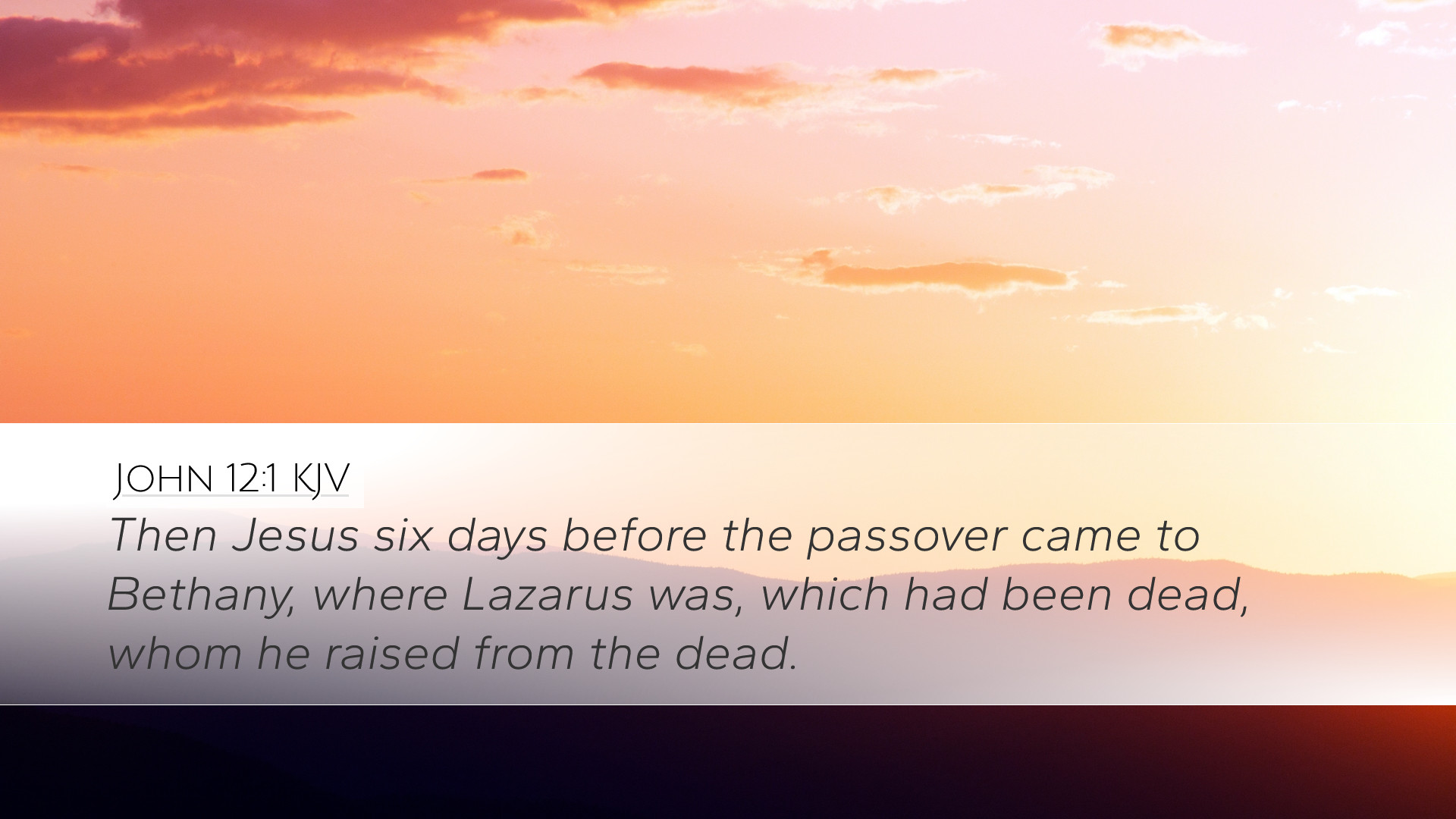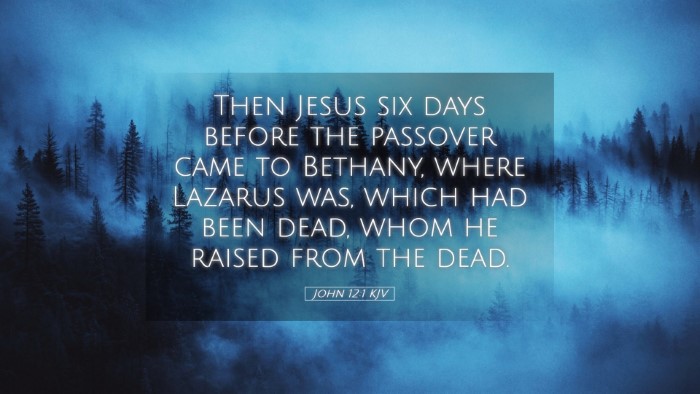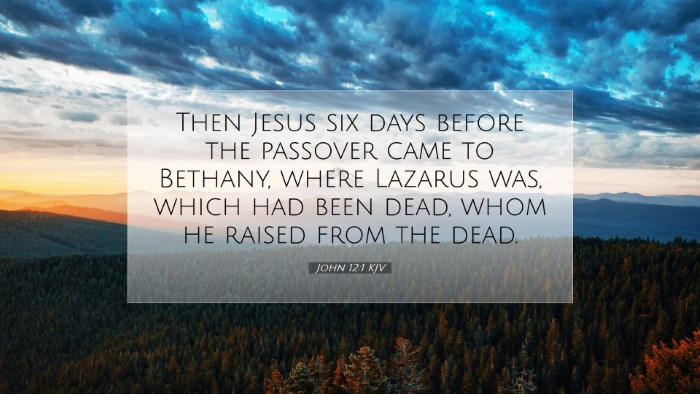Commentary on John 12:1
The Gospel of John presents a profound depiction of Jesus' ministry, notably in the lead-up to His passion narrative. In John 12:1, we encounter a pivotal moment occurring in Bethany, which sets the stage for significant themes of love, devotion, and the foreshadowing of Christ's sacrifice.
Text of John 12:1
"Then Jesus, six days before the Passover, came to Bethany, where Lazarus was, which had been dead, whom he raised from the dead."
Context and Setting
This verse occurs shortly before the Passover, an event of immense significance in Jewish tradition, symbolizing deliverance. Jesus arrives in Bethany, a town closely associated with Lazarus' miraculous resurrection—an act that brought many to believe in Him. The proximity of the Passover suggests impending fulfillment of prophecy and Jesus' impending crucifixion.
Insights from Public Domain Commentaries
Matthew Henry's Commentary
Matthew Henry provides keen observation on the timing and location of Jesus' visit. He notes that "six days before the Passover" marks a crucial juncture. The historical significance of the Passover, recalling Israel's exodus from Egypt, offers a foreshadowing of Christ's ultimate act of deliverance through His sacrifice.
Henry emphasizes the importance of Bethany, which he describes as "the place where He performed one of His most notable miracles." The mention of Lazarus not only highlights the miracle but serves as a testament to Jesus' authority over life and death, which resonates profoundly in the narrative.
Albert Barnes' Notes
Albert Barnes elaborates on the cultural setting, stressing that Bethany was a frequent retreat for Jesus. He points out the symbolic nature of Lazarus being raised from the dead "whom he raised from the dead" acts as a critical reminder of Jesus' divinity and the hope He brings. Barnes draws attention to how the resurrection of Lazarus serves as a pivotal evidence of Christ's messianic identity, challenging those who doubted His power. Furthermore, this event solidifies the tension between Jesus and the Jewish leaders, as Lazarus' resurrection incited a wave of belief among the people, further endangering Jesus in the eyes of His opponents.
Adam Clarke's Commentary
Adam Clarke reflects on the theological implications of this event, noting that Jesus' visit to Bethany indeed represents a transition period. Clarke meticulously remarks on how the "timing relative to the Passover signifies the nearing of Jesus' own fulfillment of the sacrificial system." He suggests that this pre-crucifixion meeting could also symbolize the close intimacy between Jesus and His followers.
Clarke adds a critical thought regarding the timing: "The sacred writer uses this occasion to demonstrate the manner in which Jesus prepared His followers for His passion through acts of love and teaching." This assertion leads to a deeper understanding of Jesus' commitment to nurturing His disciples through both miracles and personal interactions.
Theological Reflections
The arrival of Jesus in Bethany six days before the Passover prompts numerous theological explorations. It challenges readers to reflect on God's redemptive timeline and the depths of Christ's mission. The raising of Lazarus serves as a prelude to the greater resurrection that Jesus would experience, highlighting the themes of life, death, and resurrection central to Christian faith.
Practical Applications
- Encouragement in Trials: Just as Jesus raised Lazarus, believers can find hope in the promise of resurrection and eternal life.
- Devotion and Service: The act of Jesus visiting His friends illustrates the value of close community ties; pastors and leaders are encouraged to foster deep connections within their congregations.
- Understanding Sacrifice: Reflecting on the timing of Jesus’ actions helps in understanding the necessity of sacrifice in our spiritual lives.
- Faith and Witness: The miracle of Lazarus prompted belief among the people; similarly, our lives should serve as testimonies that point others to Christ.
Conclusion
In John 12:1, the convergence of timing, location, and miraculous power encapsulates a significant theological moment that resonates throughout Christian teaching. By exploring insights from various commentators, we discern rich layers of meaning, emphasizing God's unfolding plan through Christ’s impending sacrifice. As we reflect upon this verse, may we deepen our understanding of Jesus's love, His confrontations with doubt and disbelief, and, ultimately, His promise of resurrection that remains central to our faith.


